An interview with Jane Jensen, legendary designer of the Gabriel Knight trilogy ... and beyond?
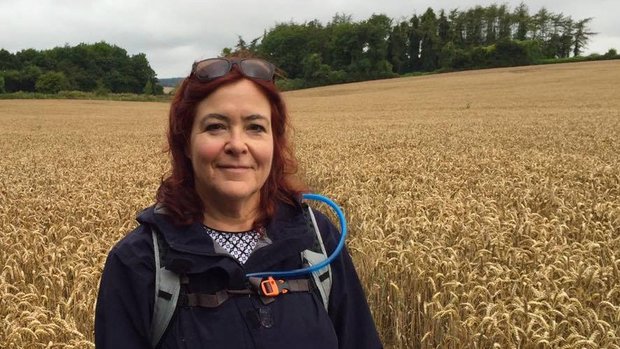
- 0 Comments
The Gabriel Knight series is one of the most beloved franchises in the adventure game genre – sadly, one whose next installment has been left lying dormant for over twenty years. Not that Jane Jensen, the legendary creator of everyone's favourite bookstore-owner-slash-monster-hunter, has been resting on her laurels all this time, nor her equally accomplished musician/composer husband Robert Holmes. The prolific author of dozens of novels, Jane has also worked on numerous games over the years, including Gray Matter, Moebius: Empire Rising, and the 20th anniversary remake of Sins of the Fathers, while Robert has kept the spirit of GK alive with a pair of music albums filled with original new game themes in a similar style, the second of which is currently on Kickstarter.
I chatted at length with Robert about his latest project, Son of Sequel, and his fascinating life in the music biz in an earlier interview, but with a family this talented, why stop there? Never one to draw attention to herself, Jane has been out of the limelight far too long, so this seemed like a perfect time to touch base and get her perspective on things and discuss their plans for the future – plans that they've made no secrets about hoping could ultimately lead to that long-awaited new Gabriel Knight sequel.
Hi, Jane. It’s a pleasure to welcome you to the Adventure Game Hotspot. I spoke with Robert earlier about his latest musical project, but it’s rare to have two such esteemed artists in the same family! (Well, three, really – is Raleigh available next?)
We'll talk about what's going on with you and Robert currently, as well as what lies ahead a bit later. But first, a little about the past, since I’d be eaten alive by rabid fans if I didn’t ask at least some questions about your time at Sierra. You’re most famous (at least in these circles) for your Gabriel Knight series, but those weren’t actually your first games. What did you learn working with the likes of Mark Crowe and Jim Walls (Police Quest III: The Kindred), Gano Haine (EcoQuest: The Search for Cetus) and of course Roberta Williams (King's Quest VI: Heir Today, Gone Tomorrow ) that helped prepare you for your own series?
Police Quest III and EcoQuest were my first projects at Sierra, so I learned a great deal about the tools the company had at that time and how the games were made. King's Quest VI was formative because I got to work with Roberta Williams, and she really was a role model of how to be a designer at Sierra and, specifically, how to stay true to your vision for a game.
When did you first conceive the idea of a slacker/budding novelist/ supernatural Schattenjäger as the hero of your own game?
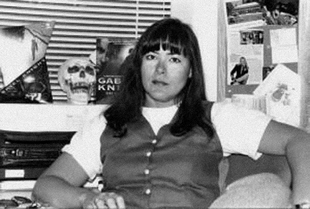
I wanted to do a detective/investigative series because I thought it suited adventure gameplay very well. But I also wanted to do something dealing with the paranormal and occult. I've been a fan of horror since my teens when I read all the horror books that were so hot in the 80s. The idea for Gabriel Knight was something I worked up when I had a chance to submit proposals for a new game series after working on KQVI. He originally was going to be a professor, a sort of paranormal research Indiana Jones. But when I decided I wanted to do a Voodoo story set in New Orleans, and thought of tying in the backstory of a witch hunter, that's when Gabriel's character and the whole ancestry angle solidified.
When you think about the role of Robert's music in your games, what comes to mind? Why do you feel the music has been such a beloved part of your games?
Robert's melodies are the kind that stick in your head. They're sweeping and often dark and haunting. I think they have a cinematic quality that helps elevate the Gabriel Knight games. I know a lot of fans think of the music when they think of GK.
Post-Sierra, as the co-founder of Oberon Media, you played a significant role in popularizing the hidden object puzzle adventure (commonly known as HOPA). Was it a big adjustment for you to tailor your stories to more casual gameplay?
I still wanted to, and was able to, tell stories. I did a few Agatha Christie adaptations, James Patterson, and Charlotte Harris. And I did a few of those games which were my own creation. It was always tempting to work in more adventure game elements like inventory, which we did use somewhat. I've always loved puzzles, so it wasn't difficult to shift to casual games. I suppose the biggest issue was the low budgets and that the games could never be very big, so there were limited locations and a much simpler story. I had hopes that market would grow into full-budget adventure games, but that never happened, in part because of the lock Big Fish had on the market. They kept the prices so low, the games couldn't really get much bigger.
It was great to see you get back into full-scale adventures again with Gray Matter. How did that project come about?
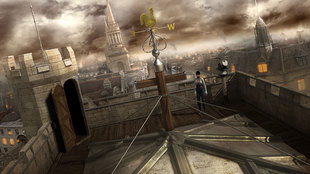
It began with a Canadian publisher who approached me about doing an adventure game. I developed the game design bible for them and a producer was assigned. But the company had financial issues and the project never got a team. Since I had a game design all ready to go, I ended up taking it to a German producer and publisher.
Can you talk a little about some of your favorite musical moments in your games? How does the process work when you and Robert collaborate on a game and music?
I love that Gray Matter was able to use music from The Scarlet Furies (Robert's band with our daughter, Raleigh). And one of the songs was written for the game and recorded with Robert and Raleigh (“David's Theme – To Forgive and To Forget”). That was fun because I got to write the lyrics, so it was a family affair. Typically, I tell Robert about a character or cinematic scene in the game, and he looks at the art in progress, and then composes a piece for it. You know, I can't recall a time when I've ever said, "no that doesn't work" or "could you do something more like this." I always love what he does.
The emergence of your own studio, Pinkerton Road, coincided with the Kickstarter boom, which helped finance not one but two different projects, Moebius: Empire Rising and the 20th Anniversary Edition of Sins of the Fathers. Was there more pressure, or less, to be accountable not just to a few company bosses but to, essentially, the entire backer base that supported you?
I did feel a great responsibility to deliver for our Kickstarter backers. Not only the two games we promised, but to deliver them on time. I didn't even consider there was another option. It's funny because other similar Kickstarters delivered their games years later, or even not at all, and the world didn't end. But I put a lot of pressure on myself to deliver what and when we promised. It was especially challenging because one of the games was GK 20th Anniversary Edition, which we'd negotiated to do with Activision. And they bailed part way through. Again, I felt I had to deliver the two games we promised, so we negotiated with them to allow us to take the game and finish it. And that put a lot more on us financially because then we were funding the rest of the game ourselves instead of Activision. We had to do it all on the $400K or so we'd raised during the Kickstarter. Ultimately, we invested our own money, and the returns were not what we expected. Unfortunately, it became clear that Kickstarter was not a viable way to finance games in future. It's a shame, because we could have done so much with Pinkerton Road. But if we do any more games, it will be with a publisher who fully finances them.
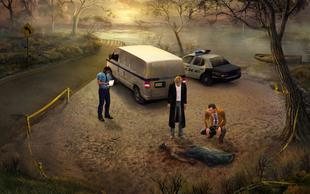
You’ve also written many books, both under your own name and under a pseudonym. Do you find it easier or harder to write novels, where you can control the entire narrative, or a game script, where you need to account for players’ involvement in the story?
Writing a game design and script is definitely a much more time-consuming project. I can typically do a novel in 3-4 months whereas doing a full game is at least a year. It's simpler to write a novel. No worrying about puzzles or budgets on locations. But it's so much fun to write a game design. :-)
When designing a game, do you focus on the story first before figuring out how to weave puzzles in, or are you able to balance the two simultaneously as you go along?
I focus on the story first. But I am always looking for a general story idea, and then plot lines, that will yield good puzzles. For example, you can't write some cerebral internal monologue for 200 pages and turn it into a game. Investigations work well. I like to work in locations that will be beautiful and interesting. I can picture the art in my mind as I develop the story and sometimes the general idea for puzzles as well.
Do you have ideas for a Gabriel Knight sequel, should that opportunity ever arise?
I have a few different ideas for GK4 that are fleshed out somewhat, yes.
With the proposed acquisition by Microsoft of Sierra IPs, and all the new channels for story-based content arising, do you feel there could be potential opportunities for another Gabriel Knight or Gray Matter in the future, either as a game or perhaps a broadcast series such as The Last of Us? Both you and Robert have said recently that you would be open to and would love to see that happen. What can we all do to help?
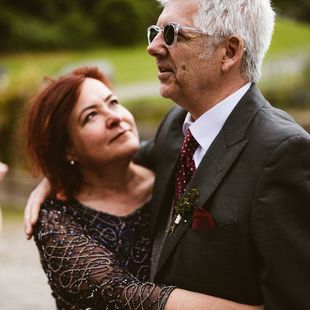
Yes to all the above. There's been a lot of interest in a Gabriel Knight film or TV series over the years, and people would contact me, and I'd send them to Activision because they hold the rights. And there it would die. Activision had no interest in doing anything with GK. I don't understand it, because why hold a property and let it wither when someone else has the money and interest to boost visibility and interest in it? But that's how it was. I'm hoping once Microsoft has the Sierra IPs, there can be some movement. Of course, we'd love to do a GK4 or be involved with one on some level.
Gray Matter is a different thing because I own that IP. So we could do Gray Matter 2, but we'd need a publisher or producer to fund it.
As for what people can do to help—any way to show there is still interest out there in Gabriel Knight will help. We were really pleased with Robert's first Kickstarter for Sequel that showed people still remembered, and felt nostalgic for, Gabriel Knight. So please support Son of Sequel, the new GK-themed music album on Kickstarter if you can. And once the Microsoft deal has closed, a petition or a letter campaign to them about GK would be excellent. Who knows—if they don't want to do GK4 but are willing to let us have the rights to it, that might be something worth another Kickstarter.
I imagine a Kickstarter for a new Gabriel Knight would be huge, if that opportunity ever arose, so we’ll certainly do our part to keep the torch burning. And let’s end on that hopeful note. Jane, it’s always a pleasure. I could keep asking you questions all day, but I thank you for taking time out to answer these. Know that we here in the adventure community are really pulling for you to return to making adventure games!
I'd like to thank the adventure game community for their continued love and support for Gabriel Knight for all these years. Robert and I truly appreciate it!


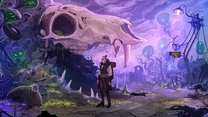
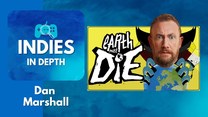
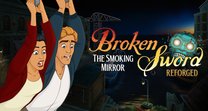

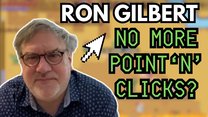
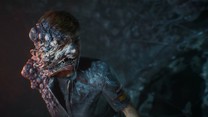
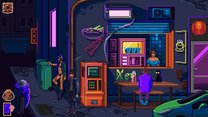
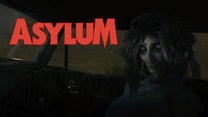
0 Comments
Want to join the discussion? Leave a comment as guest, sign in or register in our forums.
Leave a comment